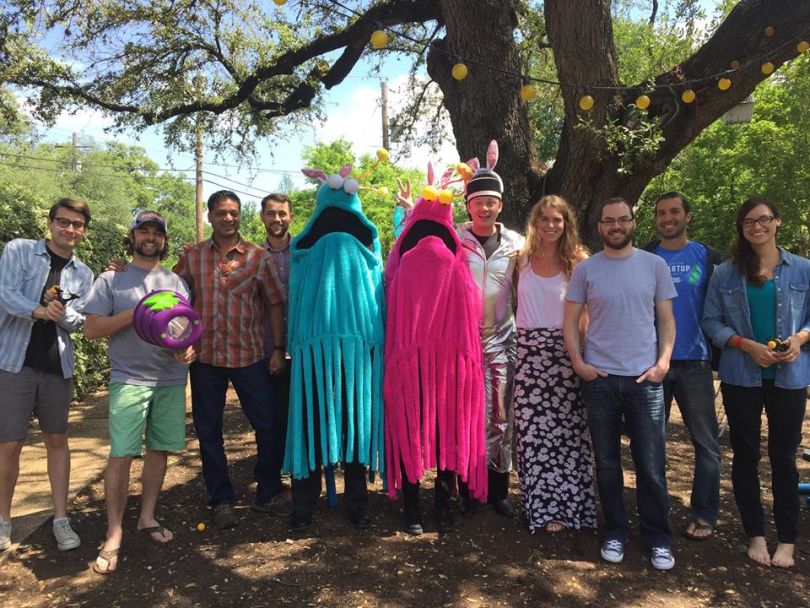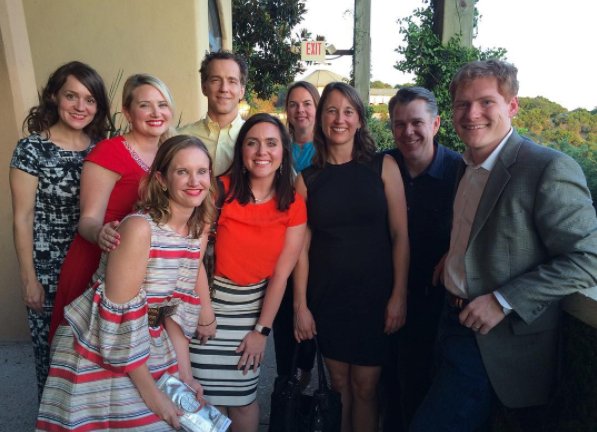
Early on in a company's journey, one of the biggest challenges a founder faces is bringing on employee No. 1. While some founders like to bring on former coworkers, others have turned to job boards and networking to find that special someone.
Regardless of how they're discovered, however, this person must be someone who can handle the bedrocks of startup culture. Someone a founder can trust. Someone willing to put in the time, wear every single hat, and ready to dive into a pool of uncertainties.
We caught up with three Austin tech founders to see what led to the hiring of their first team member, how they found them, and what qualities they sought out for employee No. 1.

Jay Manickam, co-founder and co-CEO
Originally from Maryland, Manickam attended UT's Red McCombs School of Business, where he began the development of his first company, uShip, for a class project. He continued supporting the now massive freight company until 2014, when he co-founded his second company, Everfest. Launched in 2014, the festival platform connects people all over the world with more than 15,000 festivals from 12 categories.
At what part of the early stage did you bring on your first employee?
What were you looking for in your first employee?
How'd you find them?
What advice do you have for new founders in the process of bringing on their first hires?

Suzi Sosa, co-founder and CEO
Sosa and her team at Verb produce online enterprise competitions to support early stage social good entrepreneurs across the globe. By partnering with corporations, governments and foundations, Verb hosts online competitions focused on health, water sanitation and more. Sosa herself has more than 10 years of experience in the social enterprise space, including her roles as executive director for the Dell Social Innovation Challenge and co-founder and president of MPOWER Foundation. She co-founded Verb in 2013.
When did you bring on your first employee?
Who were you looking for?
How'd you go about finding this person?
What advice do you have for new founders in the process of bringing on their first hires?
The four most important traits of your first employee: someone you can trust deeply, someone whose skills make up for your weaknesses, someone who is extremely flexible (there are always LOTS of changes in a startup) and someone who loves to make things from nothing.

Steve Corcoran, co-founder and CEO
Now active in eight markets, LawnStarter began in 2013 with Corcoran and co-founders Ryan Farley and Jonas Weigert. Corcoran and Farley attended college together at Virginia Tech, and the two met Weigert at a co-working space in Blacksburg, VA. Since launch, 30 people now work alongside the co-founders for LawnStarter, an online hub for booking lawn care services.
When did you bring on your first employee?
We sort of kicked the can down the road by hiring summer interns, but our first true full-time employee was hired a few months after we raised $220k in angel money.
What did you look for in your first hire?
How'd you go about finding this person?
What advice do you have for new founders in the process of bringing on their first hires?
Make sure you get someone who is willing to put in long hours alongside the founders. Someone who can be autonomous, who isn't afraid to try new things and learn on the fly.
Want to get in touch? Let us know with a tip or on Twitter: @BuiltInAustin



